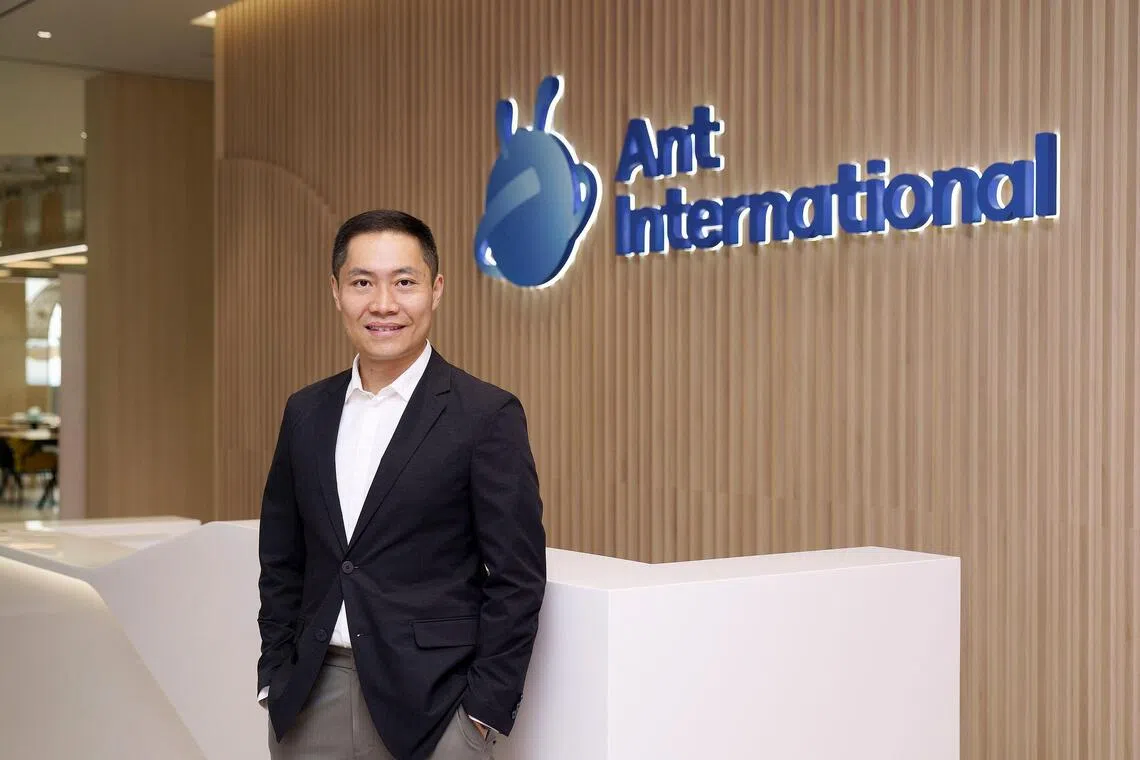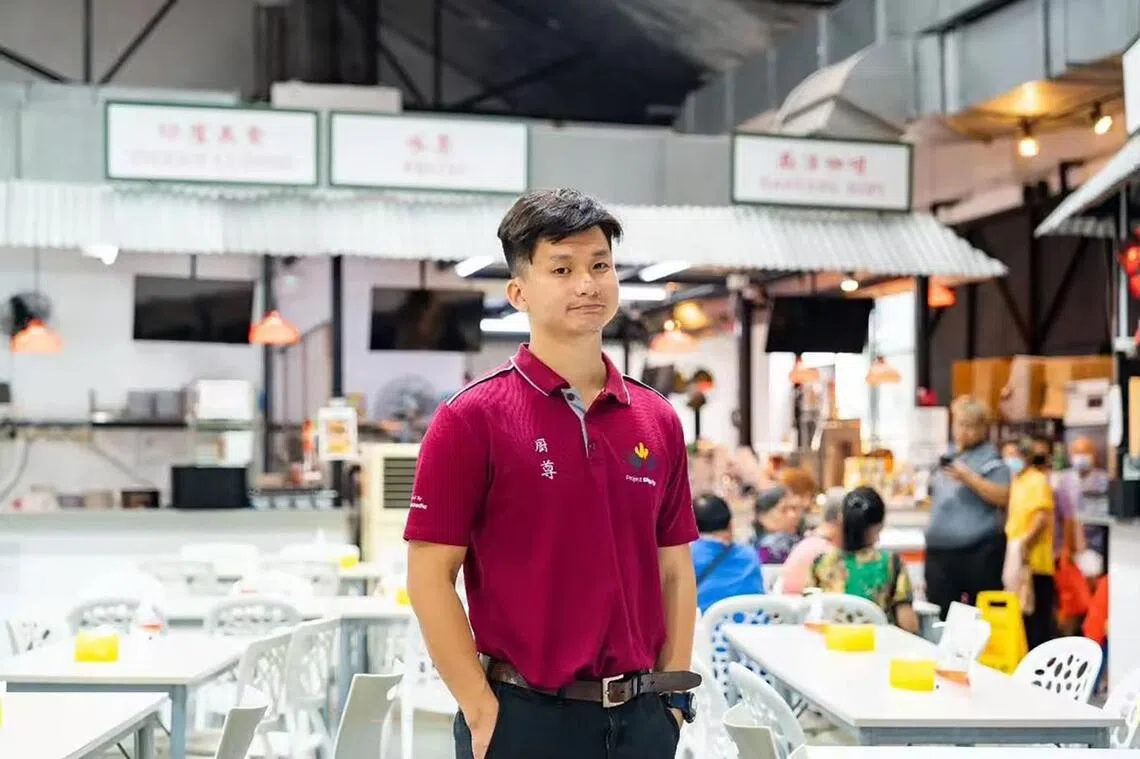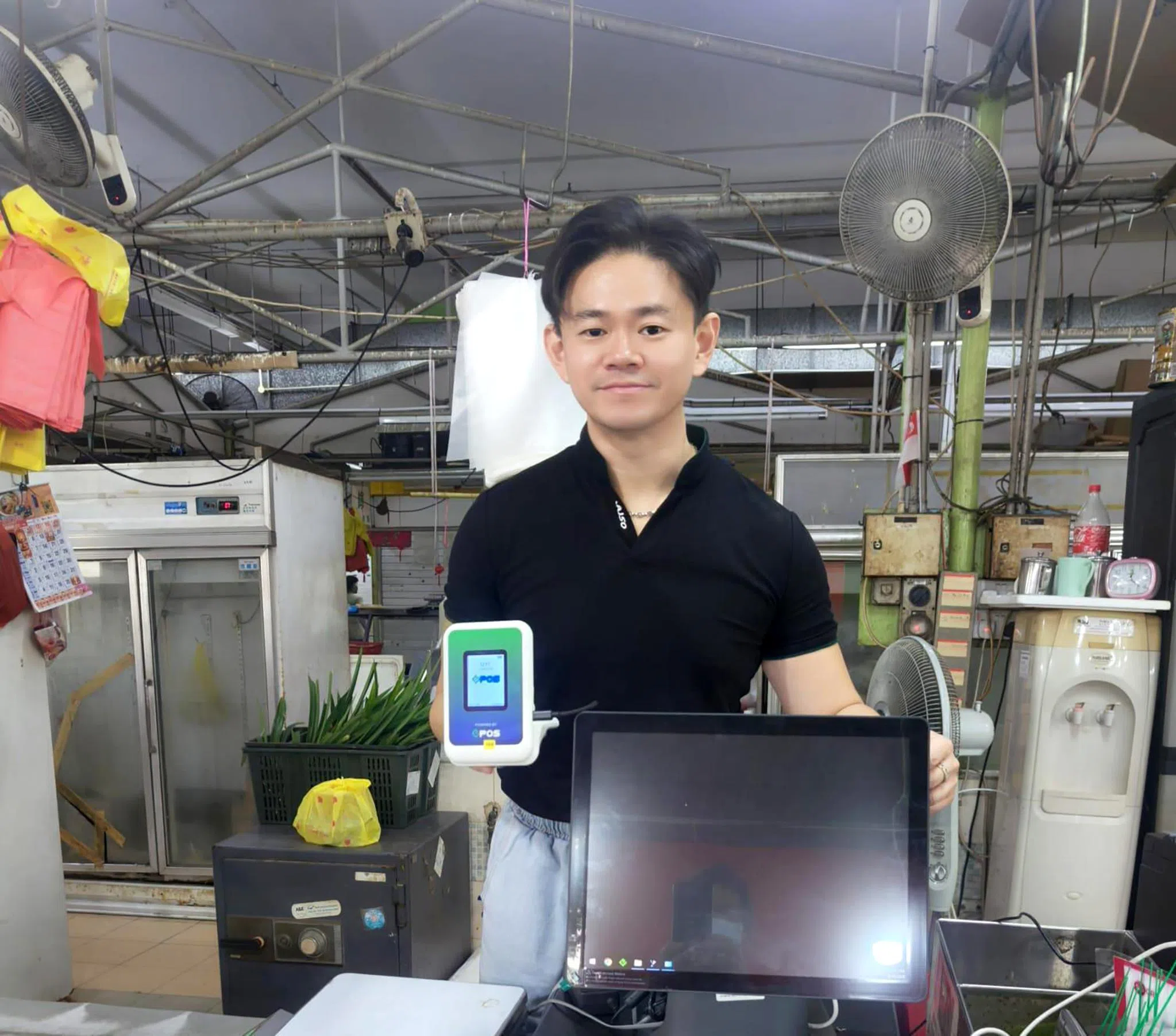Ant International’s Antom eyes more S’pore merchants as it grows payments, digitalisation services
Sign up now: Get ST's newsletters delivered to your inbox

Antom’s general manager Gary Liu noted that a key pain point for smaller merchants is having to deal with different providers for different business needs.
PHOTO: ANT INTERNATIONAL
SINGAPORE – Ant International’s Antom is tapping home-grown point-of-sale solutions company Epos to accelerate its expansion into the merchant markets of Singapore and other South-east Asian countries.
It is planning to roll out Epos’ services in Malaysia first.
Ant International acquired Epos, which serves more than 6,000 merchants in Singapore, in May for an undisclosed sum.
The merchant payment and digitalisation services provider sees an opportunity to provide a one-stop shop for merchants, especially those in the retail, and food and beverage sectors.
Epos will roll out a one-stop app later in 2025 to help small and medium-sized enterprises (SMEs) start, grow and scale their businesses by providing access to services such as digitisation, marketing, banking and payments.
Speaking to The Straits Times at Ant International’s headquarters in Guoco Midtown, Antom’s general manager Gary Liu said: “Epos will be the vehicle that we use to continue to penetrate the Singapore market. Previously, they had only the software-as-a-service component. We will add the payments, banking and lending as part of that, penetrate the existing customer base and continue to expand.”
Ant International’s ecosystem includes Alipay+, which enables cross-border payments, and digital bank Anext, which offers banking and lending services that cater to SMEs.
Mr Liu said Ant International acquired Epos as it is an established player, and has a strong merchant base, as well as an understanding of SMEs and their pain points.
He noted that a key pain point for smaller merchants is having to deal with different providers for different business needs.
“We have not seen someone who is able to provide all these things in one package to SMEs,” he added.
Project Dignity and First Market are among Antom’s customers in Singapore that are making moves to digitalise operations and improve efficiency.
Project Dignity, which runs foodcourt Dignity Kitchen, is a social enterprise founded in 2010 to create jobs for people with disabilities. Besides the foodcourt, it also runs a culinary training centre, social outreach programmes and second-hand bookstalls.
Mr Christopher Koh, Project Dignity’s assistant general manager, said Dignity Kitchen started using Antom’s omni-channel point-of-sale (POS) solution for orders and payments in April, after its previous provider was not able to fully meet its needs.
“Our previous POS was quite basic and didn’t fulfil a lot of the functions that we needed, especially with my colleagues with disabilities. So we needed a lot of customisation, in that sense, to help run our operations.”
He also appreciates the online ordering system. Customers now just scan the QR code found on the tables to place and pay for their orders online, without having to queue up. They can then check the status of their orders through a TV screen in the foodcourt.
The different payment methods integrated into one system also eases stress for his employees.
“It’s very easy to use and friendly, especially for my staff, because some of them struggle when there is a large queue, so it definitely has reduced some pressure,” he said.

Project Dignity’s assistant general manager Christopher Koh said Dignity Kitchen started using Antom’s omni-channel point-of-sale solution for orders and payments in April, after its previous provider was not able to fully meet its needs.
PHOTO: PROJECT DIGNITY
Mr Koh said the social enterprise is also considering using the same POS solution for other businesses such as the second-hand bookshops.
Given that prices of donated books vary, the company has to find the best and easiest way for the employees to utilise the POS, he said.
Meanwhile, First Market, which manages six wet markets in Singapore, said many hawkers and merchants in the wet markets still rely on cash transactions.

Mr Joe Chen, general manager of Ai Muay Group, said Epos is part of the overall digital transformation strategy the company has for the wet markets it manages.
PHOTO: AI MUAY GROUP
Challenges with cash collections include accountability, daily reconciliation and obtaining real-time data, said Mr Joe Chen, general manager of First Market’s parent company Ai Muay Group.
He said Epos is part of the overall digital transformation strategy the company has for the wet markets it manages.
The company is currently testing out Epos’ soundbox solution – which gives instant audio alerts for every successful QR code payment – in a few stalls and targets to further roll it out to 60 stalls across the six wet markets it manages within the next 12 months.
These stalls are also using Anext Bank business accounts to receive the QR code payments as part of the solution.


